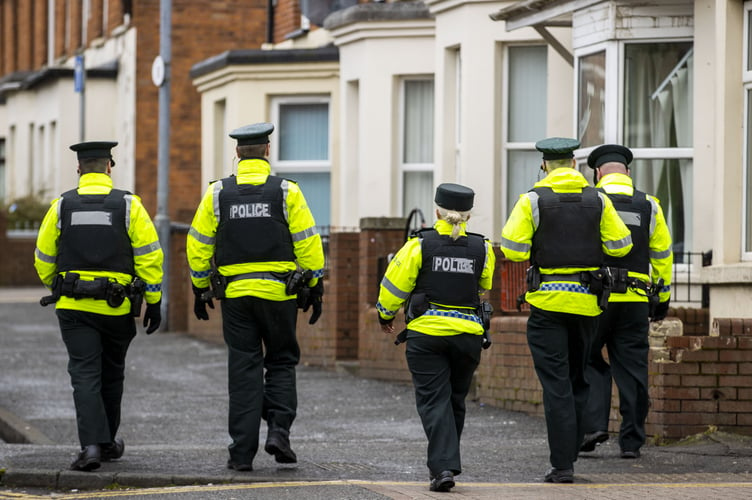Council taxpayers in Avon and Somerset are contributing more than ever to fund local policing, new figures suggest.
The Fairer Share campaign, which wants to scrap council tax and replace it with a proportional property tax, said increases in council tax contributions towards police funding in England and Wales reflect "a fundamentally unfair system that shifts the burden onto households".
It comes a month after police leaders expressed their disappointment with Chancellor Rachel Reeves’ decision to increase police funding by 2.3% above inflation on average each year in the recent spending review.
New figures from the Home Office show council taxpayers will contribute £177.6 million to fund Avon and Somerset Constabulary in 2025-26 – a real-terms increase of 3.9% on the £171 million paid the previous year.
It represents 40.4% of the force's funding for this financial year, and is the highest figure since records began in 2015-16.
The Government will provide Avon and Somerset Constabulary with £262 million, bringing the force's total funding for 2025-26 to a record £439.7 million.
Meanwhile, police forces across England and Wales will receive nearly £17.7 billion in funding this financial year, including some £6 billion from council tax precepts and just over £11.6 billion from the Government.
This is up 3.8% on the £17 billion perceived the previous year, and the highest figure since records started.
While the share of council tax precepts in police funding has increased steadily over the past decade, as just 28% of police funding was provided by council taxpayers in 2015-16, the share provided by the Government has progressively declined.
These figures do not represent the Government’s total investment in the policing system, as some funding is set in the Home Office’s wider budget allocation process.
Andrew Dixon, chair of the Fairer Share campaign, said it is "telling" council taxpayers will contribute the highest amount on record towards police funding.
He said: "That reflects not just rising demand, but a fundamentally unfair system that shifts the burden onto households, precisely the sort of regressive patchwork Fairer Share has long warned about."
He added the Government's declining share in police forces' funding is "leaving residents to make up the difference even as they face mounting cost-of-living pressures".
The Association of Police and Crime Commissioners's joint finance leads, PFCC for Essex Roger Hirst and PCC for Durham Joy Allen, said they support the Government's crime-fighting commitments, but warned this "will not be cost-free".
They said: "If we are to deliver on our commitments, fund this year’s 4.2% pay award for police officers and absorb the impact of inflation on other costs, police and crime commissioners and deputy mayors face difficult decisions which may have to include asking council taxpayers to shoulder yet more of the burden.
They welcomed the real terms increase in central government funding announced in June, but warned a "fairer and more sustainable" funding model was needed.
The Chancellor recently announced police spending power will increase by an average 2.3% per year in real terms over the Spending Review period to "support frontline policing levels" and "help restore public confidence in policing".
Chief Constable Gavin Stephens, chair of the National Police Chiefs’ Council, said: "We recognise that the Government faces tough financial choices.
"In the face of these challenges, it’s now more important than ever that police chiefs and Government continue to unite behind radical reform for policing, and crucially, give forces the flexibility they need to modernise their workforce.
"We fully support the Government’s drive to cut crime and grow officer numbers, but for these to succeed, investment in policing must live up to the ambition," he said.
A Home Office spokesperson said: "The Home Secretary announced a £1.2 billion increase in funding to police forces this year, with the 2025-26 police funding settlement providing a total of up to £17.6 billion for forces across England and Wales.
"This includes £200 million to reinvigorate neighbourhood policing and restore a visible presence of officers to our streets.
"The Chancellor has announced a real terms increase in police spending power over the next three years. As usual, more detail on force funding allocations will be set out at the provisional police settlement later this year."




